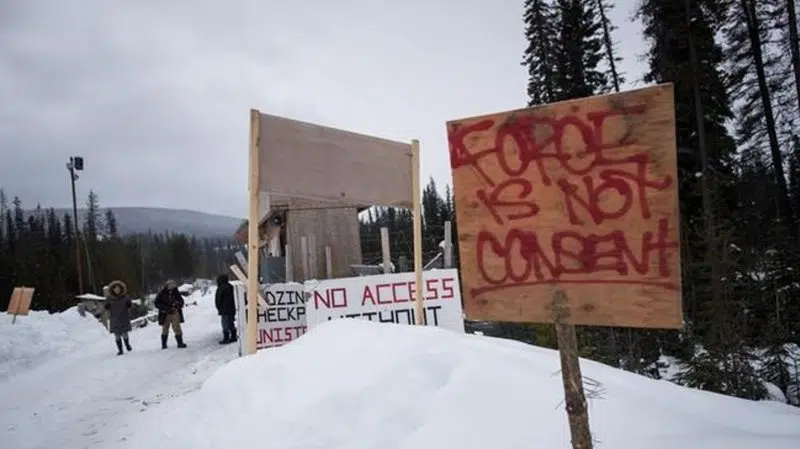
‘We are feeling strong’: B.C. pipeline opponents brace for more possible arrests
SMITHERS, B.C. — Opponents of a natural gas pipeline said they were bracing for further police action Thursday following the arrest of six people near a work site in northern British Columbia.
Speaking from the Unist’ot’en Healing Centre near Houston, Wet’suwet’en member Karla Tait said an RCMP aircraft circled the area at least 10 times Thursday after the pre-dawn arrests were made at another camp up the road.
RCMP are enforcing an expanded injunction granted to Coastal GasLink on Dec. 31.
Another Wet’suwet’en member reported that a convoy of about three dozen RCMP vehicles, an ambulance and heavy machinery was on the Morice West Forest Service Road heading toward the healing centre.


